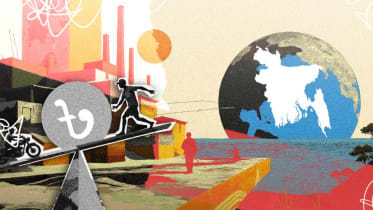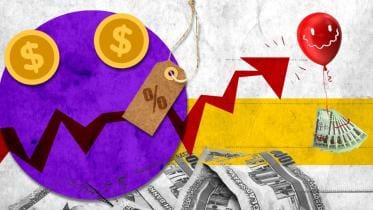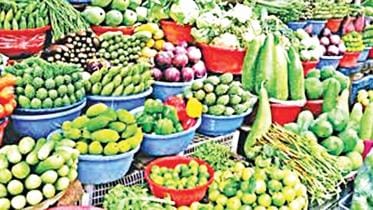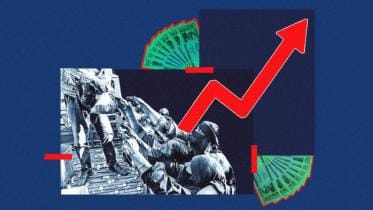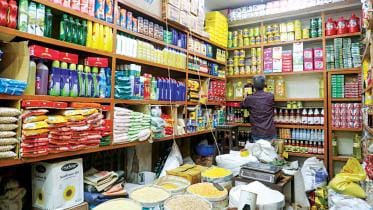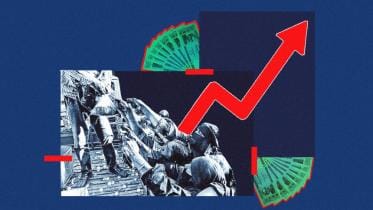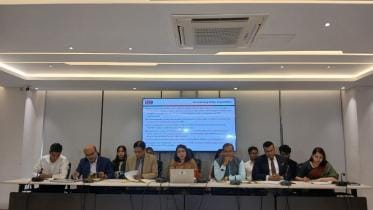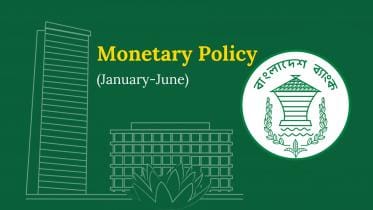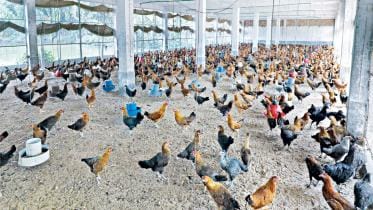Inflation
Rebutting again: The wrong lens for our interim economy
Economics is not a museum of immortal models. It is a diagnostic discipline whose tools must match the condition of the economy under examination.
19 January 2026, 00:40 AM
‘The interim has failed to curb inflation and unemployment’: A rebuttal
I write this in response to an article recently published by The Daily Star, titled The interim has failed to curb inflation and unemployment.
4 January 2026, 04:00 AM
The interim has failed to curb inflation and unemployment
If the national election does take place in February, a new government will face dire quandaries for the economy.
29 December 2025, 02:00 AM
First salary mistakes young professionals make—and how to avoid them
Master financial freedom by avoiding lifestyle inflation and prioritizing early investments. Balance your first paycheque by allocating percentages toward savings and emergency funds. Utilize credit smartly to maintain healthy scores and ensure long-term wealth.
25 December 2025, 13:01 PM
Govt forecasts inflation below 7% by next June
The Chief Adviser’s Office shared the projection
22 December 2025, 14:51 PM
Gold prices are up—but should you invest now?
In 2025, gold investment in Bangladesh is rising amid inflation and taka depreciation. Seen as a safe hedge, gold offers liquidity and cultural value, but high prices and fluctuating returns demand careful, long-term, diversified financial planning.
23 October 2025, 10:57 AM
The resurgence of inflation
Following the installation of the interim government, a multi-pronged strategy was launched to curb inflationary pressure
8 October 2025, 14:29 PM
Non-food costs fuel inflation to 8.36% in Sept
Bangladesh’s headline inflation rose slightly to 8.36 percent in September from 8.29 percent in August, according to data from the Bangladesh Bureau of Statistics.
6 October 2025, 18:00 PM
In the heart of Dhaka, Durga comes home
At Dhakeshwari Temple, Durga Puja unfolds with devotion despite inflation, idol vandalism, and societal strain. Priests replace excess with simplicity, chanting for peace, wisdom, and unity, proving the festival endures as a sacred act of resilience and hope.
28 September 2025, 11:33 AM
Inflation eases slightly to 8.29% in August
The decline was mainly driven by a notable fall in non-food inflation
7 September 2025, 08:34 AM
Inflation falls below 9% after 27 months
The easing was driven by declines in both food and non-food inflation
7 July 2025, 11:06 AM
Inflation eases slightly in May
Inflation hit 9.05% in May
2 June 2025, 10:11 AM
Dearness allowance could fuel inflation: CPD
Citing media reports, she said the move is expected to increase public expenditure by nearly Tk 7,000 crore
27 May 2025, 05:22 AM
Taming inflation in Bangladesh
Rising prices hurt the poor, forcing cuts to necessities and increasing poverty in Bangladesh.
22 March 2025, 07:00 AM
Gas price hike to fuel inflation: CPD
The caution comes as consumer prices, despite easing in the last two months, have stayed over 9 percent for the 24th month in a row
16 March 2025, 07:54 AM
Inflation eases in February
Inflation declined to 9.32% from January's 9.94%
6 March 2025, 09:42 AM
In Bangladesh, inflation control needs an iconoclastic approach
Bangladesh inflation soared (5.86 percent to 11.38 percent in 2022-2024), driven by global shocks and food prices.
4 March 2025, 10:00 AM
Monetary policy is working: CAL Bangladesh
In its latest report released today, the organisation projected inflation will stabilise between 8.5% and 9.5% by June but fall to 6-7% by December
12 February 2025, 16:27 PM
The poultry industry became the scapegoat of inflation
Ministers and members of parliament of the previous government relentlessly blamed “syndicates” for increasing the prices of chicken, eggs and other foods.
9 February 2025, 09:28 AM
Inflation eases to single digits in January
Inflation in Bangladesh eased for the second consecutive month in January, driven by stable food prices due mainly to an abundant supply of winter vegetables to the local market.
4 February 2025, 18:00 PM



